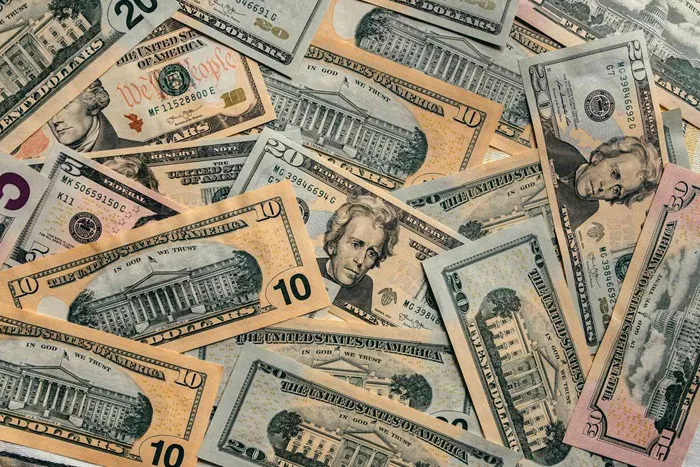In an increasingly globalized economy, understanding currency conversion is essential for international business, investment, and personal finance. When dealing with substantial amounts, such as 1 billion US dollars (USD), it’s important to accurately convert this amount into other currencies to assess its value and implications. This article provides a comprehensive guide on converting 1 billion USD into Indian rupees (INR), detailing the conversion process, the factors influencing exchange rates, and the real-world implications of such conversions.
Understanding Currency Conversion
Currency Conversion Fundamentals: Currency Conversion is the process of determining how much one currency is worth in terms of another currency. This is achieved using an exchange rate, which shows the amount of one currency needed to purchase one unit of another currency.
Exchange Rate: The exchange rate fluctuates based on various factors, and it is crucial for accurate financial planning and international transactions.
Current Exchange Rate
Exchange Rate Determination
Exchange rates are determined by the foreign exchange market (Forex), which operates globally and is influenced by supply and demand for currencies. The rates are quoted as the amount of one currency needed to purchase one unit of another currency.
Recent Rate Example
As of the latest data, let’s use an approximate exchange rate of 1 USD = 83 INR. This rate is indicative and can vary depending on the time and source of the exchange rate.
Conversion Formula
To convert USD to INR, use the formula:
- Amount in INR=Amount in USD×Exchange Rate
For 1 billion USD:
- 1,000,000,000 USD×83 INR/USD=83,000,000,000 INR
Thus, 1 billion US dollars equals 83 billion Indian rupees at the exchange rate of 1 USD = 83 INR.
See also: Why Should You Buy U.S. Dollar Coin (USDC)?
Factors Influencing Exchange Rates
1. Economic Indicators
Inflation Rates: Countries with higher inflation rates generally see their currency depreciate because the purchasing power of the currency declines relative to other currencies. Conversely, lower inflation can strengthen a currency.
Interest Rates: Higher interest rates attract foreign investment, leading to increased demand for a currency and appreciation. Lower interest rates can have the opposite effect.
Economic Growth: Strong economic performance typically results in a stronger currency. High GDP growth can attract foreign investment and increase currency value.
2. Market Sentiment
Geopolitical Events: Political stability and policy changes can significantly impact investor confidence and currency values. Events like elections, trade disputes, and geopolitical tensions can lead to currency fluctuations.
Global Events: Events such as natural disasters, global pandemics, and financial crises can influence currency values by affecting economic stability and investor sentiment.
3. Supply and Demand
Currency Demand: A higher demand for a currency can lead to its appreciation. Factors driving demand include international trade, investment, and speculative trading.
Foreign Exchange Reserves: Countries with substantial foreign exchange reserves can influence currency values by buying or selling foreign currencies. Central banks use reserves to stabilize their own currency.
4. Speculation
Trader Expectations: Currency traders and investors speculate on future economic conditions and events. Their actions based on anticipated changes can cause fluctuations in exchange rates.
See also: How To Make Money In Forex Trading?
Real-World Applications of Currency Conversion
Business and Finance
International Transactions: Businesses involved in international trade need to convert currencies for importing and exporting goods and services. Accurate conversion ensures proper financial planning and cost management.
Financial Reporting: Multinational companies must convert foreign revenues and expenses into their home currency for financial reporting and consolidation.
Investment: Investors with holdings in foreign currencies need to convert currencies when buying or selling assets. Exchange rate fluctuations can affect the value of investments and returns.
Travel and Tourism
Travel Budgeting: Travelers need to convert their home currency into local currency for spending. Understanding exchange rates helps in budgeting and managing expenses during travel.
Investment Decisions
Foreign Investments: Investors and financial institutions use currency conversion for assessing the value of foreign investments. Exchange rate changes can impact investment returns and risk management.
Historical and Recent Trends
Historical Exchange Rate Trends
Exchange rates between USD and INR have varied over the years due to changes in economic conditions, policy shifts, and global events. Historically, the INR has experienced periods of both depreciation and appreciation relative to the USD.
Recent Trends
In recent years, the INR has faced pressures due to various factors, including economic conditions, trade balances, and global market dynamics. Monitoring recent trends helps in understanding current exchange rates and making informed financial decisions.
Conclusion
Understanding the conversion of 1 billion US dollars to Indian rupees is not only a mathematical exercise but also a reflection of the broader economic context. Using the current exchange rate of 1 USD = 83 INR, we find that 1 billion USD equals 83 billion INR. This conversion highlights the significance of exchange rates in international finance and trade. By comprehending the factors that influence exchange rates and their implications, businesses, investors, and individuals can make more informed decisions and manage their financial activities effectively. Whether for business transactions, investments, or personal finance, accurate currency conversion is crucial in navigating the global economic landscape.
Related Topics:

